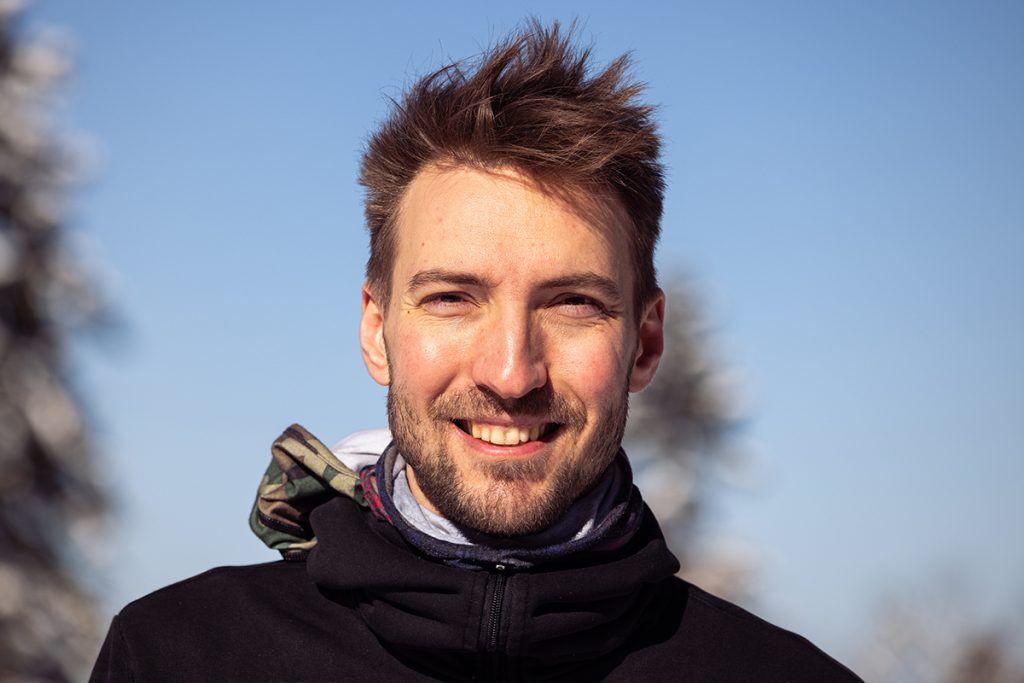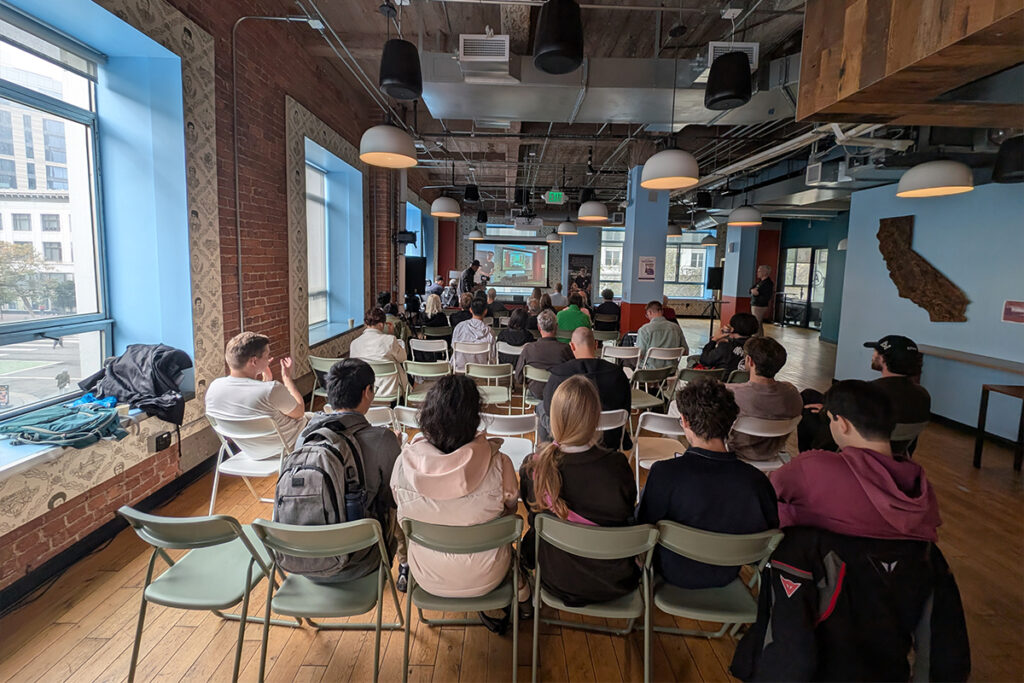Hackaging.ai co-organizer Alexey Strygin on breaking through the field’s bottlenecks and inspiring new innovators via a global AI hackathon.
Four major bottlenecks hold back longevity today: limited funding, a small talent base (Norn Group puts serious contributors at ~2,000 worldwide), scarce data, and low public awareness. We asked the provocative question: what if we deploy an army of AI agents to accelerate the longevity field and address these bottlenecks?
So we brought together people curious and committed to solving aging, gave them guidance, structure, and resources, and watched them systematically attack these bottlenecks.
In other words, we ran a hackathon.
Run primarily online, Hackaging.ai united participants from at least 129 cities across 26 countries – after all, innovation should not be limited to Silicon Valley when we have so much talent everywhere. As might be expected, the participant composition was STEM-heavy: 233 AI engineers, 205 enthusiasts, 163 product builders, 134 researchers, 88 data scientists, 50 healthcare professionals, and 75 with biotech, wet lab, comp bio, or engineering backgrounds. Feedback we gathered confirms that several teams are continuing with longevity projects, so we have already checked the first box: new talent entering the field.
Other key numbers:
- 966 individual registrations (751 participants, 215 spectators)
- 54 teams did final submissions
- 18 mentors
- US$42,000 in prizes
- 11 sponsors: Nebius, Retro Biosciences, Gero, VitaDAO, Bio.xyz, Immortal Dragons, AthenaDAO, Open Longevity, LifeAhead, Bioptic, ElectroBiopunk
Why sponsors fund this
Why did serious organizations fund Hackaging.ai? Because a well-designed hackathon is one of the fastest, cheapest ways to firstly, attract and genuinely engage top talent, and secondly, test real hypotheses and get non-trivial answers in days instead of quarters.
Let’s dig deeper why hackathons are useful for different types of organizations:
- The startups sponsor because they are seeking top technical talent. Sponsorship costs less than typical headhunter fees and internal HR is also not exactly free. Companies can evaluate live performance while engineers rally around a meaningful theme. Even industry leaders like Insilico Medicine take pride in the fact that a lot of their employees come from hackathons. In our case, we were able to attract Retro.bio and Gero.ai as sponsors. Predictably, the Retro.bio challenge was the most popular within the fundamental track.
- Cloud providers are known to sponsor hackathons. In our case, we were able to attract Nebius ($NBIS) as a computational sponsor. It was mutually beneficial: Life Sciences is one of the strategic priorities for Nebius and we were happy to provide our participants with powerful capabilities of Nebius Token Factory (previously AI Studio).
Artem Elmuratov, Head of Life Sciences and Healthcare at Nebius and a hackathon judge, says: “AI has the power to transform how we understand and extend human longevity, one of the most meaningful and promising endeavours in our time. Seeing so many teams combine creativity with deep scientific insight was truly inspiring. With Nebius infrastructure, they were able to fine-tune and run inference efficiently to develop and test new healthcare-focused AI solutions during the hackathon.”
- Owners of some of the longevity verticals. In reproductive and female longevity, we received substantial financial and intellectual support from AthenaDAO. Together we demonstrated how quickly AI-augmented teams can move: where the ecosystem long recycled a single McKinsey estimate, within two weeks participants produced three independent market and evidence assessments for female longevity and menopause interventions. This is exactly the kind of rapid hypothesis testing the field has been missing. Similar dynamics played out across two other female-focused challenges. We are happy that we managed to do the impact.
As AthenaDAO founder Laura Minquini said: “Delaying menopause will do wonders for mass adoption and interest, however we need more talent working on this. The teams and projects coming out of the Hackathon shows that if we create the incentives; people will come.”
- Other aligned organizations. Our focus was on building agentic AI, which is highly aligned with bio.xyz current strategy to develop a launchpad for bio ai agents and other bio projects. Huge win-win – our hackers got the additional option to fundraise for their projects, bio.xyz – the inflow of new teams.
“It was a great opportunity to share the BIO Stack and see the creativity of the builders in the hackathon,” says James Sinka, Chief Scientific Officer of Bio.xyz
- Investors look for talented founders and companies to invest as early as possible. In our case we secured sponsorship from Immortal Dragons as well as an interest to look at the most promising teams from LongeVC, 2060 Foundation and NFX.
“Immortal Dragons is proud to sponsor the HackAging Hackathon,” said Boyang Wang, Founder of Immortal Dragons. “We remain committed to supporting technologies and initiatives that advance longevity research and continue to push longevity boundaries.”Once sponsors were in place, we turned to attracting participants. We had two value proposition hypotheses: participants would seek jobs in longevity or aim to start a longevity company. That is where we focused our marketing efforts. However, our post-registration survey indicated these were not the most common answers. The most common motivations actually revolved around becoming part of the community and learning and improving skills. An invaluable insight for the next hackathons.

What was built
“We’re witnessing the first generation of AI agents that can read scientific literature, generate hypotheses, design experiments, and even propose new therapeutics,” says Peter Fedichev, CEO of Gero.ai and co-organizer of the hackathon. “The hackathon was a glimpse into how such systems will soon become an integral part of real-world biomedical R&D.”
The hackathon was divided into two tracks: fundamental track (well-defined challenges with dedicated mentors and metrics of success) and rapid adoption track (blue-sky challenges for those preferring more freedom).
The challenges with notable results in the Fundamental track:
- Aging Theory challenge led by Dmitry Kriukov and Simon Steshin from Computage set out to untangle the web of causality in aging by systematically mapping existing theories. The winning AI workflow identified 2,114 candidate theories, far beyond the few hundred or so any of us expected.
- Singularis challenge, led by Professor Peter Lidsky was focused on moving to a post-scientific papers way to represent scientific findings
- Sequence-to-function challenge by Retro.bio focused on protein sequence-to-function relationships to empower future protein and gene reengineering
- Menopause prediction tool that use biological, hormonal, and lifestyle data to predict menopause symptom patterns and suggest evidence-based management
The most notable projects in Rapid Adoption track:
- ECM Aging Atlas, that aggregates publicly available human and murine datasets into a unified database, using agentic AI to standardize data processing and harmonize knowledge of age-related ECM changes across tissues.
- Longevity Intervention Evidence Tracker, AI agent system addressing longevity evidence synthesis problem – still a rough prototype, but the team promised to keep up the valuable work.
- OmicOS, AI-powered computational biology partner for discovery.
The winning demos are available on the hackathon website or demo day YouTube stream.
What happens next?
We stay actively involved with multiple teams, helping them refine their ideas and connect with the right partners and investors. Given the overwhelmingly positive feedback, we are already planning the next iteration of the hackathon. We learned a lot, built IT infrastructure and processes, and are looking forward to organizing something on an even larger scale. Reach out to me if you want to collaborate as a partner or pre-register to hack aging with your own hands.
Special thanks to Hackaging.ai team for making the event possible: Mike Batin, Vita Stepanova, Ira Evdokimova, Max Likhter, Danila Immortalist, Oksana Korzhavina, Sofia Abrosimova, Aleksandra Shliakhova, Anna Abbakumova, Elena Abaskulieva
About Alexey Strygin

Alexey Strygin is a bioentrepreneur focused on advancing longevity biotechnology. He is co-organizer of the Hackaging.ai Hackathon, Founder of Longevity Economics Institute and a Core Team Member of Viva.city.

